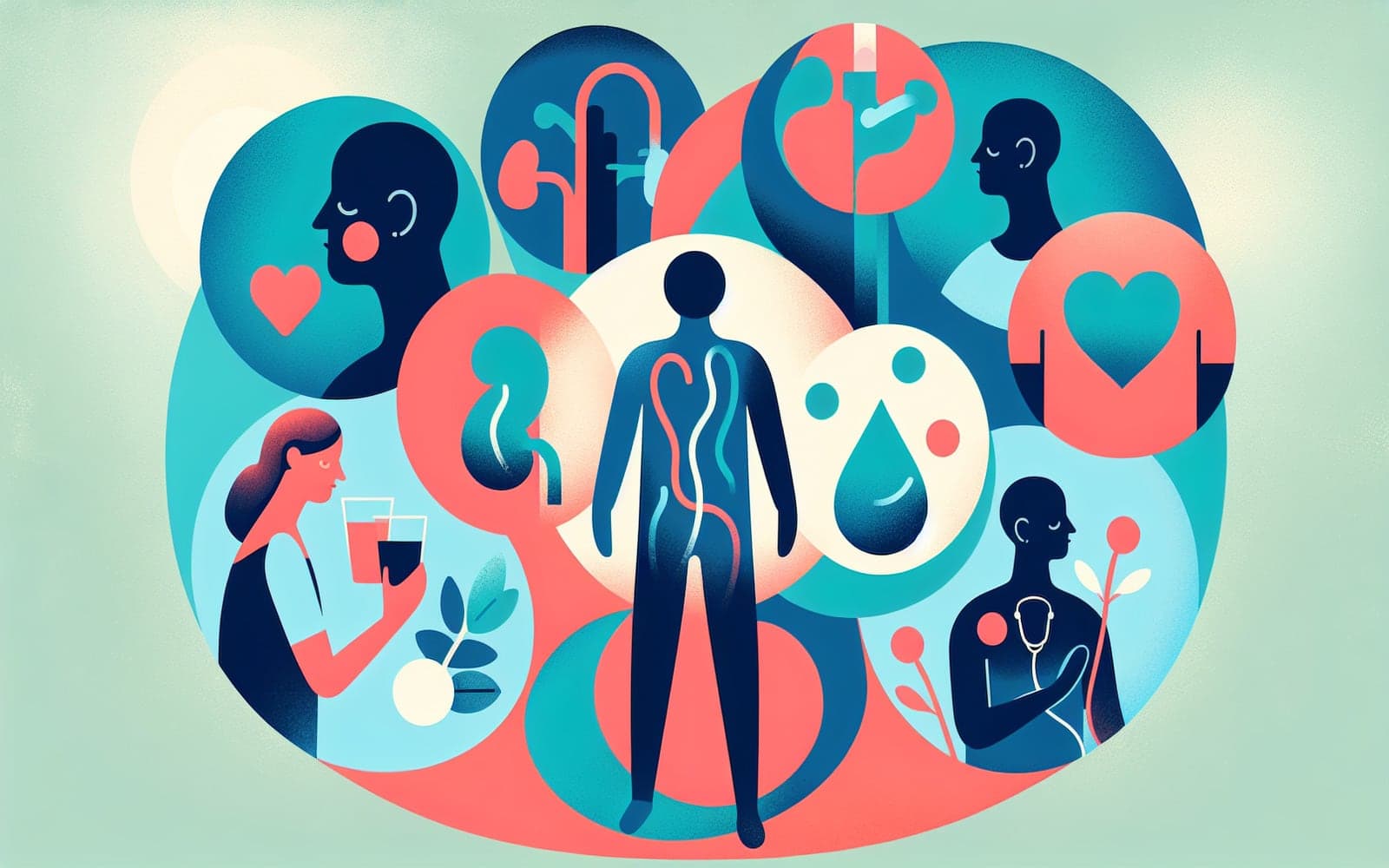7 Simple Steps to Keep Your Kidneys Healthy
Published: Apr 13, 2024

Medically reviewed by Alan Lucks | MD, Alan Lucks MDPC Private Practice - New York on April 13th, 2024.
Your kidneys play a crucial role in keeping your body healthy, but they're often overlooked until problems arise. The good news is that there are simple, effective steps you can take to protect your kidney health.
Contents
1. Stay Hydrated
Drinking plenty of water helps your kidneys flush out toxins. Aim for at least 8 glasses a day, more if you're active or in hot weather. Water is the best choice, but other fluids count too. Just be mindful of sugary or caffeinated drinks.
2. Eat a Kidney-Friendly Diet
A balanced diet low in sodium and rich in fruits, vegetables, and whole grains supports kidney health. Limit processed foods and red meat. If you have existing kidney issues, your doctor may recommend specific dietary changes.

3. Exercise Regularly
Regular physical activity helps maintain a healthy weight and blood pressure, both crucial for kidney health. Aim for at least 30 minutes of moderate exercise most days of the week. This could be brisk walking, swimming, or cycling.
Frequently Asked Questions
Some may help, but always consult your doctor before starting any supplements.
Annually if you're at high risk, or as recommended by your doctor.
Chronic stress may indirectly impact kidney health by raising blood pressure.
Moderate alcohol consumption is generally okay, but excessive use can harm kidneys.
Key Takeaways
By incorporating these simple steps into your daily routine, you can significantly reduce your risk of kidney problems and improve your overall health.
Ready to take control of your kidney health? Chat with Doctronic for personalized advice on keeping your kidneys in top shape.Related Articles
References
National Kidney Foundation. K/DOQI clinical practice guidelines for chronic kidney disease: evaluation, classification, and stratification. Am J Kidney Dis 2002; 39:S1.
Kidney Disease: Improving Global Outcomes (KDIGO) CKD Work Group. KDIGO 2012 Clinical Practice Guideline for the Evaluation and Management of Chronic Kidney Disease. Kidney Int Suppl 2013; 3:1.
This article has been reviewed for accuracy by one of the licensed medical doctors working for Doctronic. Always discuss health information with your healthcare provider.

